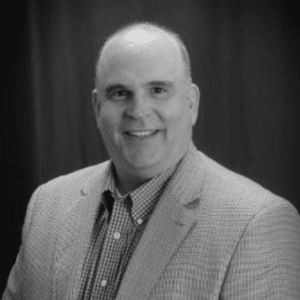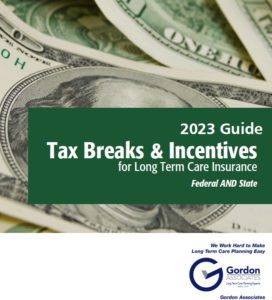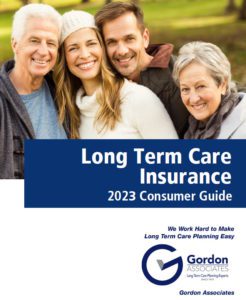From Gordon Associates – we are pleased to post this guest blog from Jose Rodriguez with Team Hochberg / Homeside Financial
This blog covers an important topic we’re hearing more and more about. We hope you find it valuable.
The average pre-retiree and retiree in the U.S. today has under-saved and risks running out of money during retirement.
According to the Census Bureau, home equity represents two-thirds of the average American’s net worth at age 65 and over.
Often, a client’s most significant asset, primary home, is not considered part of a financial plan.
As financial planners and fiduciaries look for ways to improve seniors’ retirement plans, they are now considering this significant asset to help mitigate the retirement risks listed below.
7 Retirement Risks at a Glance
- Longevity: The risk of outliving assets
- Inflation: Erosion of asset values over time.
- Health Expense: Escalating unanticipated health, drug, dental, and hearing costs.
- Long-Term Care: Coverage and policy lapses in Long Term Care Insurance
- Forced Retirement: An early exit not only forces you to start using your savings before you intended, but you also have added fewer dollars to your retirement accounts than planned.
- Pension: Insolvent/reduced pension funds
- Loss of Spouse: Not only emotional loss but loss of income as well.
How can seniors use home equity to generate greater security in retirement?
By considering a Reverse mortgage.
What is a Reverse mortgage?
A Reverse mortgage is a non-recourse loan secured by the home, in which monthly principal and interest payments are not required.
What can a Reverse mortgage be used for?
- Eliminate monthly mortgage payments
- Supplement monthly income
- Reduce or eliminate credit card debt.
- Home improvements
- Age in place
- Reduce portfolio draws.
Who is eligible for a Reverse mortgage?
- Seniors, 62 and older.
- Your home must be your primary residence and have sufficient equity.
- Property must be a single-family residence, an owner-occupied 2–4-unit home, or a condominium (must be FHA approved).
- Meet financial assessment requirements as established by HUD.
The goal of a reverse mortgage is to allow seniors to access equity and stay in their homes. The financial review is for the lender to determine if a Reverse mortgage is a sustainable solution.
When is the loan due?
The loan becomes due and payable upon death or when the last borrower no longer occupies the home as a primary residence.
How much equity can I/we access?
The home value, the youngest borrower’s age, and the current rate determine the amount of equity to access. At today’s rates, seniors can access an average of 33%- 70% of home value. Liens (if any) against the home must be paid with Reverse mortgage funds.
What about a Home Equity Line of Credit?
I will give four reasons why a Reverse Mortgage is better than a Home Equity Line of Credit:
- The Reverse mortgage provides flexibility as there is no required monthly principal + interest payment.
- The Reverse mortgage cannot be frozen, reduced, or canceled if the loan is in
- good standing.
- The Reverse mortgage line of credit remains available until the youngest borrower’s 150th birthday. At the same time, a typical Home Equity Line of Credit has a draw period of 10 years when the loan will amortize or balloon, putting cash flow at risk.
- The Reverse mortgage line of credit grows organically at the same compounding rate applied to the loan balance, increasing borrower capacity as the borrower ages. At the same time, a Home Equity Line of Credit has no growth.
Four myths about Reverse mortgages
- Myth: The lender owns the home.
Fact: You retain title to the property like a traditional mortgage; the lender issues a lien against the home to repay the loan when due.
- Myth: Loan proceeds are taxed.
Fact: Loan proceeds are not taxed and can be used for any purpose
- Myth: The home must be free and clear of any existing mortgage(s)
Fact: Many seniors pay off their current mortgages using the HECM.
- Myth: Reverse mortgages are for the desperate or poor.
Fact: This perception is incorrect; low-income seniors, as well as affluent ones, utilize the benefits of a reverse mortgage.
Jose Rodriguez brings over 27 years in the financial services sector to the mortgage lending industry. Jose is passionate about helping people pick the right product that suits their personal needs in the largest financial decision in most people’s lives.
Footnote:
*State-Level Wealth, Asset Ownership, & Debt of Households Detailed Tables: 2022


 To help determine if long-term care (LTC) insurance is right for you, we are offering a FREE informational guide. This is a comprehensive booklet that will answer many of your questions about tax breaks and incentives for LTCI for federal and state taxes.
To help determine if long-term care (LTC) insurance is right for you, we are offering a FREE informational guide. This is a comprehensive booklet that will answer many of your questions about tax breaks and incentives for LTCI for federal and state taxes. To help determine if long-term care (LTC) insurance is right for you, we are offering a FREE informational guide. This is a comprehensive booklet that will answer many of your questions about LTC and assist you with your health care planning.
To help determine if long-term care (LTC) insurance is right for you, we are offering a FREE informational guide. This is a comprehensive booklet that will answer many of your questions about LTC and assist you with your health care planning.